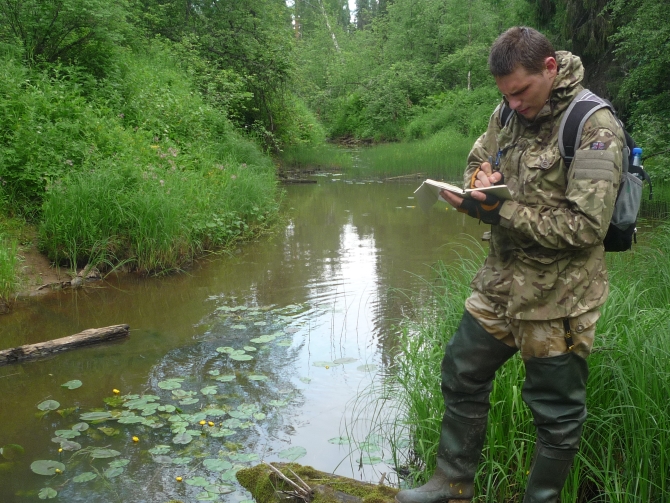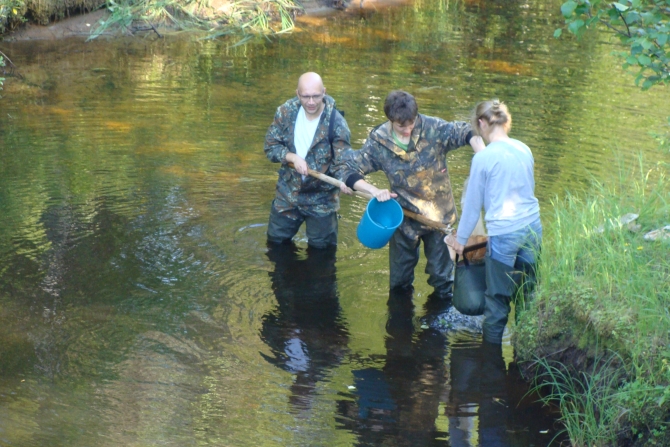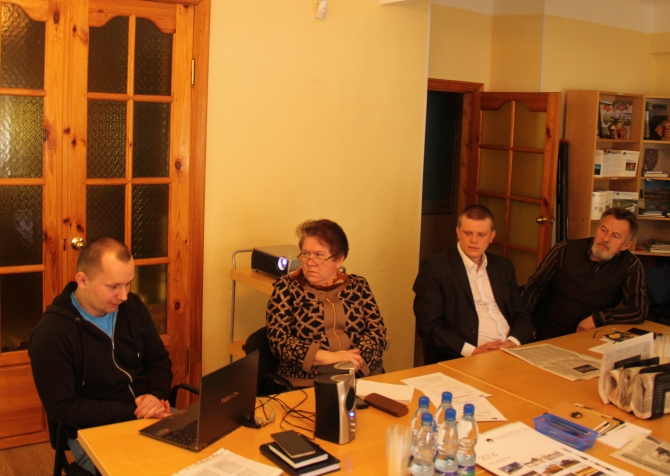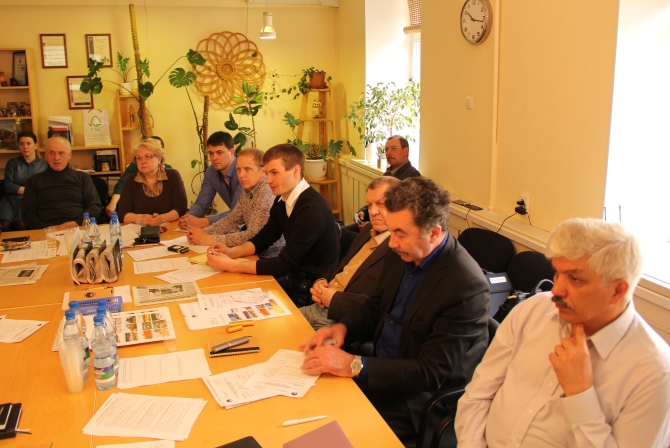The Project Is Relevant, Its Results – Demanded
Last April Silver Taiga GIS-specialist Alexander Borovlyov presented the intermediate results of the Assessing Long-Term Logging Impact on Water Resources project at two scientific conferences – in Saint Petersburg and in Kirov.
A lot of interest was taken by the participants of the Forests of Russia: Politics, Industry, Science, And Education conference held in St. Petersburg State University of Forestry on 13-15 April to the Foundation’s activities in general and in particular to the project on assessing logging impact on water resources. The attendees were concerned about the selection of methods for the impact assessment, hydrology data sources, estimated results, and many other issues. Alexander’s presentation and the subsequent question-and-answer session turned into a keen discussion of the problem relevant for many forestry regions, however poorly studied yet.
At the end of April the project was displayed to another audience – to participants of the all-Russia workshop Business. Science. Environment of the Homeland: Problems and Solutions held in the Vyatka State University, where Alexander reported on the methods of assessing long-term logging impact on water resources. These include, in particular, Earth remote sensing data making it possible to compare the rates of deforestation and subsequent regeneration of cutover stands in a particular catchment basin by correlating space images of different periods. Then, development of runoff parameters is traced based on the data from the Service for Hydrometeorology and Environmental Monitoring. With regard to minor and medium streams the project participants use such field techniques as bioindication and measurement of the stream and the flood bed. Interviews of long standing inhabitants held in Udora district support the obtained data in a way…
Alexander Borovlyov’s report was of great interest at the conference in Kirov, too. The discussion revealed a lot of questions, recommendations and proposals. To sum up the overall feedback in brief, the project is relevant, and its results will be demanded.
“Unfortunately, I failed to meet anyone dealing with the same project or tackling similar issues among participants of both conferences,” Alexander says. “We seem to be the only organization to address the problem. Meanwhile, everyone admits the relevance and practical implication of the study. Nevertheless, I find our participation in the conferences fruitful – the issue invited the attention of experts, we got interesting recommendations, met new people, including potential partners.”




